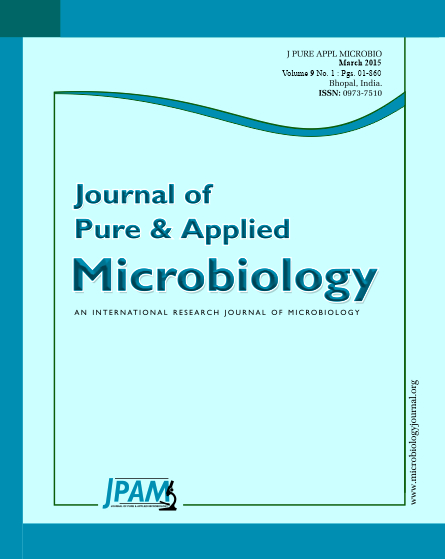Nine bacterial strains were isolated from the waste water collected from slaughter house of Sadra village, Gujarat, India. Among the isolates, one potent strain was selected on the basis of diameter of zone of clearance and enzyme activity. The strain was identified on the basis of microscopic, cultural and biochemical tests as Staphylococcus sciuri. Biochemical tests were performed by VITEK® 2 Systems Version: 05.04 at Supra Tech laboratory, Ahmedabad. Some fundamental parameters like effect of raw materials, substrate concentration, pH, temperature, incubation time and inoculum size, nitrogen and carbon sources for maximum protease production were also studied. Maximum yield of enzyme was obtained at pH of 9.0 with 3 mL inoculum size in the media containing 2% stem of Sorghum vulgare (jowar) as substrate, after 24 h of incubation in environmental shaker maintained at a temperature of 25ºC along with maltose as carbon source and beef extract as nitrogen source. The study show that the Staphylococcus sciuri can efficiently produce alkaline protease using stem of Sorghum vulgare.
Enzyme production, Plant waste, Bacterial isolate, Optimization of enzyme
© The Author(s) 2015. Open Access. This article is distributed under the terms of the Creative Commons Attribution 4.0 International License which permits unrestricted use, sharing, distribution, and reproduction in any medium, provided you give appropriate credit to the original author(s) and the source, provide a link to the Creative Commons license, and indicate if changes were made.


